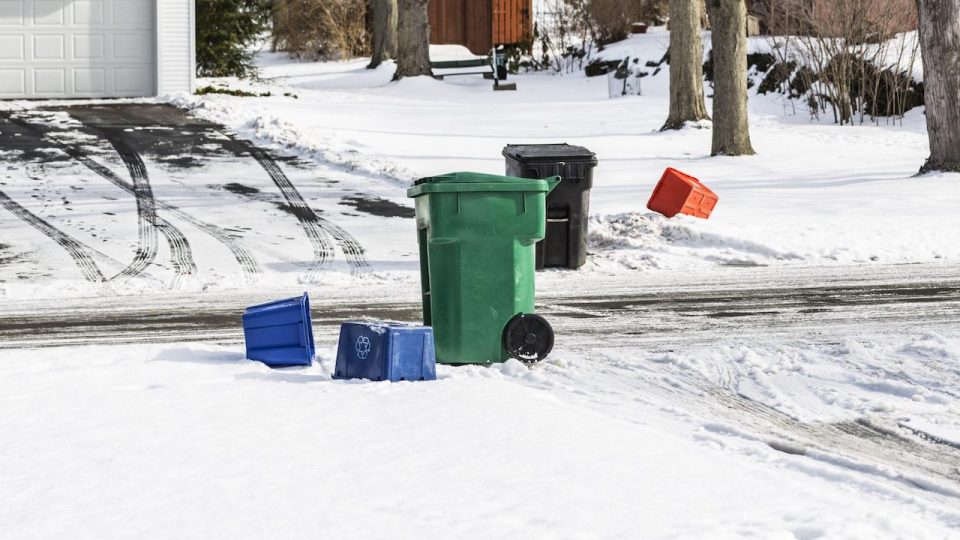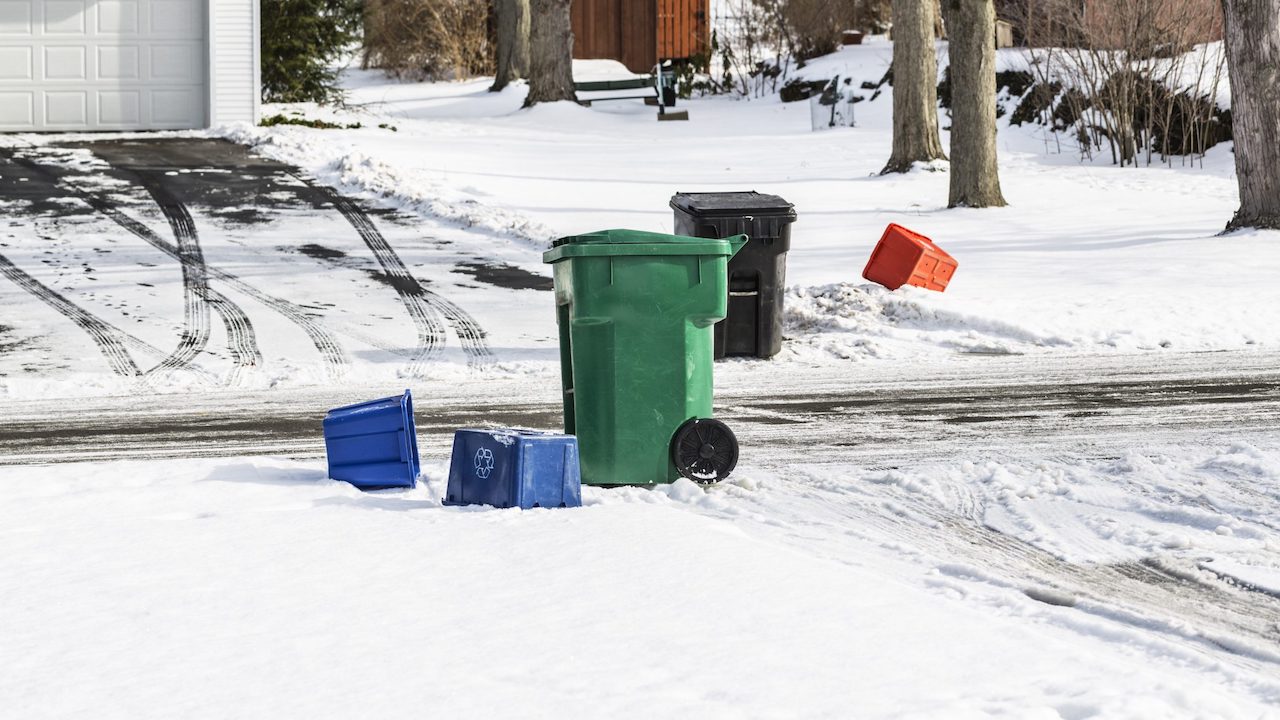
Rich Elliott has never felt particularly heroic while placing his bin of recyclables out for collection each week.
“I’ve just always felt that it was basically the right thing to do to help the environment,”
said the Redford resident, 51. “My mom and dad always recycled when I was growing up, and I’ve continued the habit.”
But now, amid the lingering fallout of the COVID-19 pandemic, what Elliott views as a simple routine has taken on added significance, recycling experts say.
One big change: With many offices and businesses closed or operating at diminished capacity, a primary supply of recycled paper and cardboard that toilet paper, box and other manufacturers have long relied on to make new products has dwindled – leaving it to residential recyclers like Elliott to help make up the difference.
“Recycling has always been environmentally and economically important, but market shifts in the wake of the pandemic have made it even more so,” said Matt Flechter, recycling market development specialist for the Michigan Department of Environment, Great Lakes, and Energy (EGLE). “The consequence of less recycling by businesses is that fewer recyclables are in the supply chain for paper companies to make products like cardboard boxes and toilet paper.”
More than 75% of U.S. paper mills use recovered paper from recycling operations for their daily production needs, Flechter said.
“The bottom line: When you recycle properly, you are helping to supply manufacturers with the valuable materials they need,” he said. “At the same time, the new products they make help people who are stuck at home while we all work together to mitigate the spread of the coronavirus.”
Essential service
Virtually all of Michigan’s recycling service providers have continued to operate during the pandemic, though a few suspended operations or changed their processes when the pandemic first hit. Residents are advised to check with their local provider on the current rules in their area. If recycling is temporarily unavailable, EGLE is encouraging households to store their recyclables – including rinsed and emptied metal and plastic containers – in a clean and dry place until service resumes.
But in general, curbside residential recycling has remained available as usual throughout Michigan because it’s considered an essential service.
Production of paper products – including toilet paper and boxes used for shipping – has also kept running in the state and nationwide.
Filling the void
Consider Pratt Industries Inc., a major cardboard box manufacturer with five paper mills in the U.S., including one each in Indiana and Ohio that are both supplied by Michigan recycled paper. In addition, Pratt has box plants in Livonia and Grand Rapids that ship to companies such as Amazon, Ford and General Motors.
Paul England, senior vice president for Pratt’s Midwest region, noted that all of the company’s boxes are made from recycled paper, including corrugated containers, cereal boxes, newspapers, magazines and junk mail.
“That’s our raw material – without that, we can’t make boxes,” he said, adding that demand for Pratt’s products has surged because of increased e-commerce shipments during the pandemic. “Items such as medical supplies, food and personal care items all ship in a box. Anybody that produces a box is just trying to keep up with demand right now.”
At the same time, in the pandemic’s immediate aftermath, recyclable paper supplied to box makers by commercial sources dropped by 30% after businesses started closing because of health and safety concerns, England said.
“What is interesting is that we’ve also seen a pretty significant uptick in curbside recycling as more goods are consumed at home,” he said. “So our advice to Michigan residents is that they can make a positive impact on the economy by continuing to recycle what’s recyclable so that we have the materials to continue making boxes for shipping.”
Know the rules
Residential recycling is also important for toilet paper manufacturers, including Great Lakes Tissue Co. in Cheboygan, which each month uses 2,100 tons of recycled raw material – half of which comes directly from recycling operations across the U.S. and Canada.
In March, toilet paper sales soared 112% nationwide as people stocked up amid the COVID-19 outbreak. The hoarding of toilet paper and paper towels largely eased after a few weeks, although there was another run on paper products when COVID-19 cases surged again in late fall.
As part of its ongoing Know It Before You Throw it statewide recycling education campaign, EGLE encourages Michigan curbside recyclers who want to help keep raw materials flowing through supply chains to check the rules for what recyclables are accepted in local programs.
Best practices statewide generally include:
- •No need to remove staples, paper clips or plastic windows from envelopes.
- •Keep it dry and free from liquid contaminants.
- •Never put COVID-related personal protection equipment (PPE) like masks and gloves into your recycling bin. PPE should go into a trash container for proper disposal.
- •Paper coffee cups are not usually accepted (the inside is typically coated in plastic to prevent leaks).
- •Magazines and newspapers are usually recyclable.
- •Paper towels, tissues, wipes and napkins aren’t usually recyclable and don’t belong in the bin.
Proper plastic practices
While paper has garnered the most attention, the coronavirus crisis has also affected other recyclable materials.
For example, shoppers have stockpiled bottled water and other supplies that come in plastic containers, like hand sanitizer and sanitary wipes.
EGLE notes that, while residents should always check with their local provider and follow its specific rules, those types of plastic bottles and containers are generally recyclable as long as they’re rinsed and emptied.
Plastic bag usage has also increased as consumers have groceries delivered rather than go to the store themselves and haul their items in reusable bags.
While plastic bags – as well as the plastic wrapping that toilet paper and paper towel comes in – is rarely recyclable curbside, retailers such as Meijer, Target and Walmart accept them at in-store drop-off stations. If your local outlet has temporarily halted collections, or you’ve stopped going there in person, EGLE urges you to store them for drop-off when normalcy resumes.

